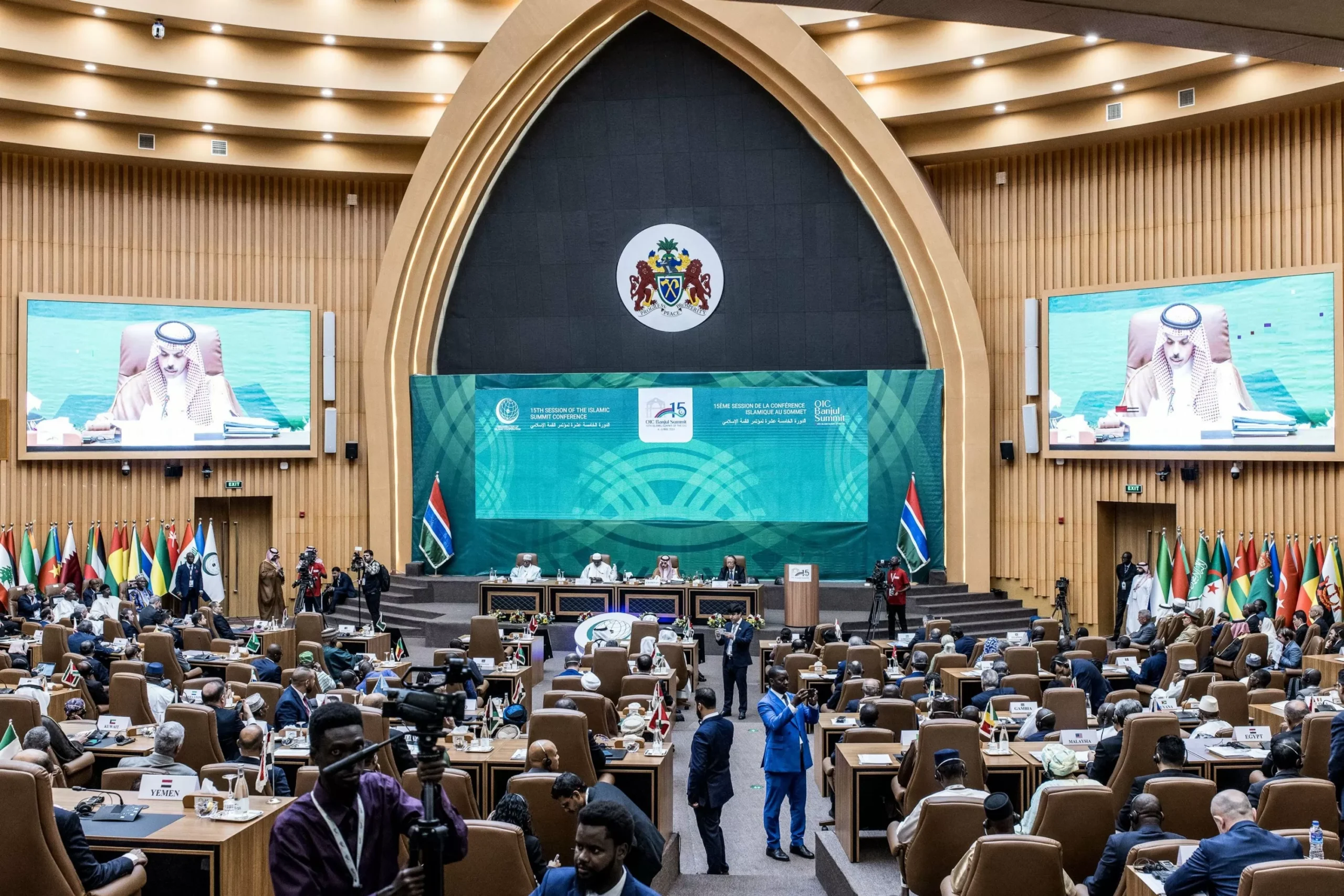The Organization of Islamic Cooperation (OIC) held its 15th summit in the beautiful city of Banjul, Gambia on Saturday. The summit was a crucial gathering of leaders from 57 member states, who came together to discuss and address the ongoing humanitarian crisis in Gaza. This summit was a testament to the unity and solidarity of the Muslim world in the face of adversity.
The OIC, established in 1969, is the second largest intergovernmental organization after the United Nations. It serves as a platform for Muslim countries to come together and address issues of common concern. The theme of this year’s summit was “Hand in Hand towards the Future,” highlighting the importance of cooperation and collaboration among member states.
The summit was attended by leaders from various countries, including the host country Gambia, as well as Saudi Arabia, Turkey, Iran, and many others. The presence of such a diverse group of leaders demonstrated the OIC’s commitment to promoting unity and solidarity among Muslim nations.
One of the main focuses of the summit was the ongoing humanitarian crisis in Gaza. The Palestinian people have been facing immense suffering and hardship due to the Israeli occupation and blockade. The OIC has always been at the forefront of supporting the Palestinian cause and advocating for their rights. The leaders at the summit reiterated their unwavering support for the Palestinian people and called for an immediate end to the violence and oppression in Gaza.
In his opening speech, the Secretary-General of the OIC, Dr. Yousef Al-Othaimeen, emphasized the need for a unified stance on the Palestinian issue. He stated, “The Palestinian cause is the central issue for the Muslim world, and it is our duty to stand in solidarity with our brothers and sisters in Palestine.” He also called for the international community to take concrete actions to end the suffering of the Palestinian people and to hold Israel accountable for its violations of international law.
The summit also discussed other pressing issues facing the Muslim world, such as the rise of Islamophobia and the threat of terrorism. The leaders stressed the importance of promoting a message of peace, tolerance, and coexistence among different religions and cultures. They also condemned all forms of terrorism and extremism, which have no place in Islam.
The summit also saw the signing of several important agreements and resolutions. One of the significant agreements was the establishment of a new OIC office in the city of Al-Quds (Jerusalem). This move is a clear message to the world that the OIC stands firmly with the Palestinian people and their right to have their capital in Al-Quds.
The leaders also adopted a resolution to establish a joint Islamic media platform to counter the negative portrayal of Islam and Muslims in the media. This platform will serve as a means to promote the true values of Islam and to combat Islamophobia.
The summit also witnessed the election of a new Secretary-General, Dr. Yousef Al-Othaimeen, for a second term. This is a testament to the confidence and trust that member states have in his leadership and his commitment to the OIC’s goals and objectives.
In conclusion, the 15th OIC summit in Banjul was a resounding success. It brought together leaders from diverse backgrounds and united them in their efforts to address the challenges facing the Muslim world. The summit reaffirmed the OIC’s commitment to promoting peace, stability, and development in the Muslim world and beyond. The OIC has once again shown that when Muslim nations come together, they can achieve great things and make a positive impact on the world. Let us hope that the decisions and resolutions taken at this summit will bring about a brighter future for the Muslim world and the Palestinian people.





![Complete BritRail Pass Guide [Types, How to Use It, Pros + Cons]](https://inside-news.uk/wp-content/uploads/2025/06/00221EB4-BCA2-4DBB-6CD4-83DBC37D71FA-120x86.webp)












